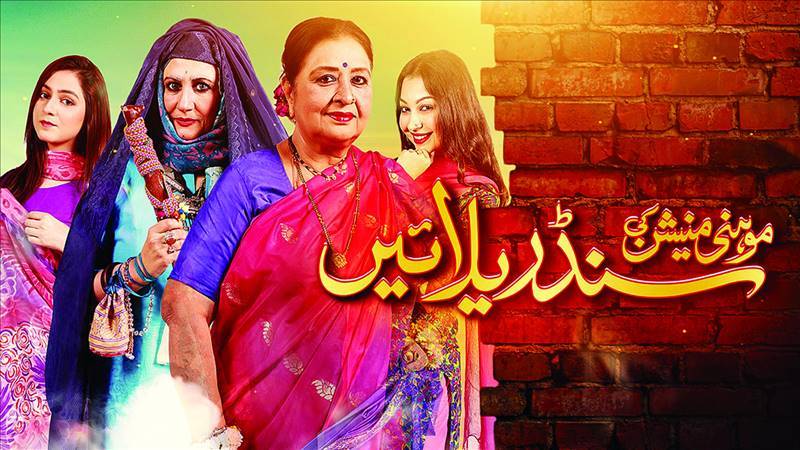
Ali Tahir definitely does not need an introduction. Having won the hearts of Pakistanis through both sitcoms like Teen Bata Teen and serious works like Mujhe Jeene Do, Ilteja and Taar-e-Ankaboot, Tahir has also worked as a director, creating classics like period plays like Samjhota Express and Mohini Mansion ki Cinderellayen and romances like Sitara and Rang.
***
Muhammad Ali: We know you as an actor, as a writer and as a director. Which of these is your real calling?
Ali Tahir: All of these fields are interconnected, and what keeps them connected is the element of creativity. So, it is creativity which is my real calling. God has blessed us with a small portion of this quality of His, and we, as artists, feel honoured in this regard. Creativity is what I love and creativity is what attracts me towards itself.
M.A.: As a director, what kind of stories do you like to tell? Is there some specific genre that inspires you?
A.T.: Like every director, I also have countless stories in my mind, belonging to various genres. Although Realism is what inspires me the most and what I think should be the technique employed to narrate relatable stories, I do have fantasy stories in my mind as well.
M.A.: Why is it that we do not see you frequently on screen? Are you very choosy about the drama serials that you do? Have you ever rejected a project that came your way?
A.T.: I prefer to keep my uniqueness intact. I never get involved with three projects at a time, as I believe that it is not my temperament. I do one project at a time and give my hundred percent to it instead of dividing myself between two projects, with none receiving its due attention. When you do selective work, people remember you for your characters, and that is what I like.
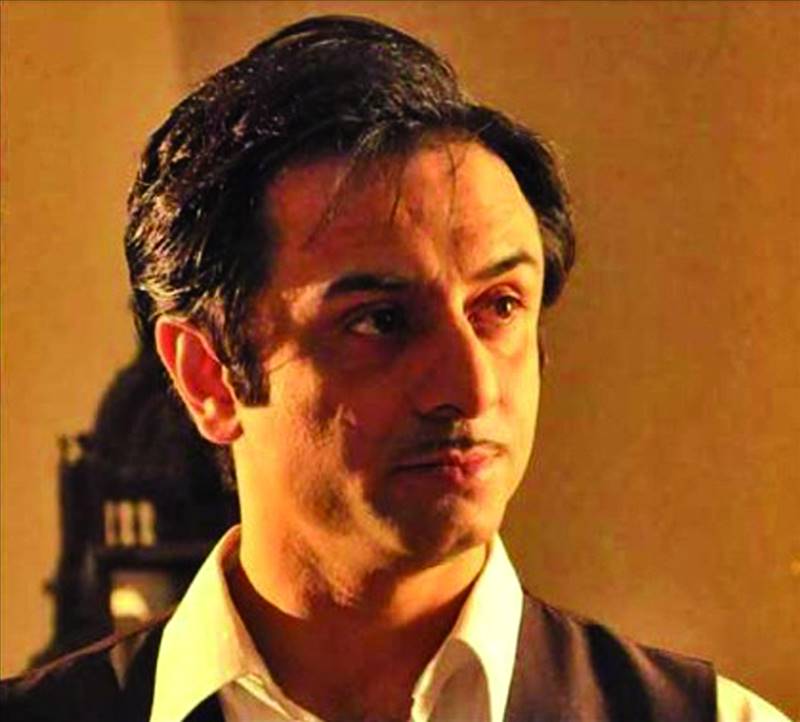
M.A.: You have been teaching media arts for almost five years now. What makes you hopeful and what makes you disappointed about Pakistan’s aspiring creative artists? What is that one thing that you do not compromise on as a teacher of Liberal Arts?
A.T.: Yes, I have been teaching at BNU and Punjab University, with offers from LUMS and UCP as well – which I haven’t been able to accept up till now. Teaching is something that I love. What I like is that the newcomers are quite dynamic, with modernity and uniqueness in their approach. Another good thing is that the influence of Bollywood has lessened and now the youngsters are inspired by cinema from all over the world.
Coming towards disappointment, I don’t get disappointed at all, for, every student is talented and needs but a good teacher. Lastly, I myself prefer to compromise because there’s nothing bad in it. In-fact, it earns you respect. But yes, I do want that all the students work very hard and try to polish the talents they have been blessed with instead of wasting them.
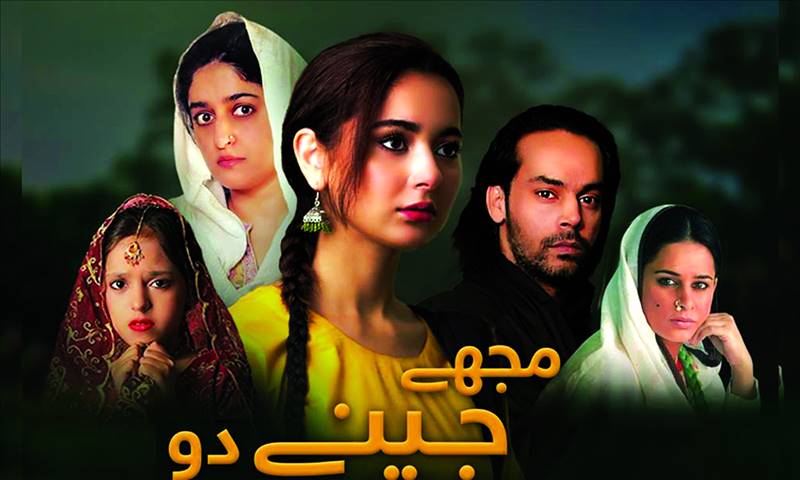
M.A.: Two of your very important serials, Taar-e-Ankaboot and Mohini Mansion Ki Cinderellayen got shut down in the middle. How discouraging is this for a creative artist?
A.T.: Yes, it’s strange how both of the projects, although admired by the audience, were shut down. Another coincidence is that both of them were written by the same writer, Faseeh Bari Khan. Both of us were left equally disappointed at these points in time, along-with the people who could relate to both the serials. Yes, it’s highly depressing when you invest so much of your effort in something and it fails to reach the audience. However, I do wish that both of these serials are sent on air once again in their complete forms.
M.A.: In many of your projects, you have appeared with your family members. Is it easy to maintain a professional environment while working with family?
A.T.: Yes, I have worked many times with my family members. Maintaining professionalism is not difficult, as all of us have been working for so many years now. Plus, it reuires you to know just how important professionalism is, for moving towards excellence. Keeping this in mind, we are able to work in a proper manner.
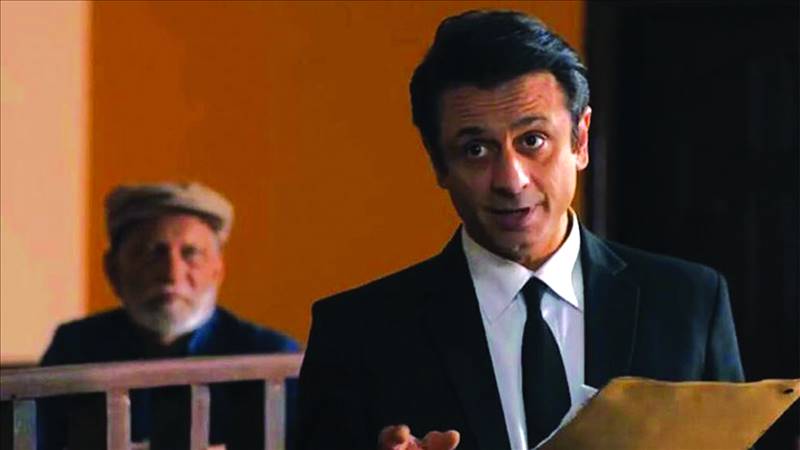
M.A.: From the time period in which you would do classics on PTV and the modern era of Pakistani drama, which phase is closer to your heart?
A.T.: I entered PTV at the end of the classics’ era, unfortunately. It was in the 1970s and ‘80s that one classic was being produced after another.
Talking about contemporary Pakistani television drama, we definitely have progressed in terms of technicalities. But when it comes to direction, acting and writing, we have failed.
Back then, PTV would itself encourage quality in all of these aspects of drama-making. The channels these days aren’t targeted at bringing good actors, good directors or off-beat scripts. The objective is to just rope in all of these people as quickly as possible for a quick production that yields maximum monetary benefit.
M.A.: Which project of yours, as an actor or as a director, is your personal favourite and why?
A.T.: As an actor, I have enjoyed doing Teen Bata Teen, Nayi Qameez, Taar e Ankaboot and Ilteja. As a director, my first play Sitara is my personal favourite. Apart from that, a documentary I made on Punjab, and Mohini Mansion Ki Cinderellayen, are also very close to my heart.
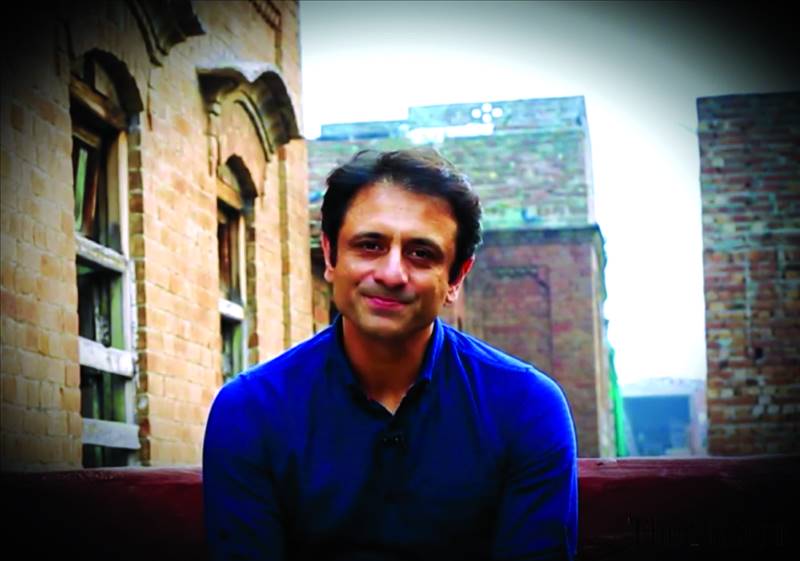
M.A.: What are you currently working on?
A.T.: One acting project of mine is on shoot and another one in pipeline. In direction, I am directing a web-series which I have written myself. It is being shot in Lahore, Karachi and America, and it is probably going to be a one of its kind Pakistani work, which you’ll get to see either in the third or fourth month of October.
Muhammad Ali is an M.Phil scholar and a former visiting lecturer at GCU, Lahore. His interest lies in indigenous literature, the specific research areas being the Partition novel, Environmental Literature emerging from South Asia and classical and contemporary Pakistani television drama. His research on Sahira Kazmi’s “Zaib un Nisa” which was a part of his graduation thesis has been presented on various platforms including Olomopolo Media. This interview is a part of a series of interviews in which various Pakistani celebrities including writers, actors and directors will be asked questions regarding their professional work. The writer can be reached at m.ali_aquarius85@yahoo.com.
The Friday Times caught up with actor, director and producer to ask him a few questions.
***
Muhammad Ali: We know you as an actor, as a writer and as a director. Which of these is your real calling?
Ali Tahir: All of these fields are interconnected, and what keeps them connected is the element of creativity. So, it is creativity which is my real calling. God has blessed us with a small portion of this quality of His, and we, as artists, feel honoured in this regard. Creativity is what I love and creativity is what attracts me towards itself.
“I entered PTV at the end of the classics’ era, unfortunately. It was in the 1970s and ‘80s that one classic was being produced after another”
M.A.: As a director, what kind of stories do you like to tell? Is there some specific genre that inspires you?
A.T.: Like every director, I also have countless stories in my mind, belonging to various genres. Although Realism is what inspires me the most and what I think should be the technique employed to narrate relatable stories, I do have fantasy stories in my mind as well.
M.A.: Why is it that we do not see you frequently on screen? Are you very choosy about the drama serials that you do? Have you ever rejected a project that came your way?
A.T.: I prefer to keep my uniqueness intact. I never get involved with three projects at a time, as I believe that it is not my temperament. I do one project at a time and give my hundred percent to it instead of dividing myself between two projects, with none receiving its due attention. When you do selective work, people remember you for your characters, and that is what I like.

M.A.: You have been teaching media arts for almost five years now. What makes you hopeful and what makes you disappointed about Pakistan’s aspiring creative artists? What is that one thing that you do not compromise on as a teacher of Liberal Arts?
A.T.: Yes, I have been teaching at BNU and Punjab University, with offers from LUMS and UCP as well – which I haven’t been able to accept up till now. Teaching is something that I love. What I like is that the newcomers are quite dynamic, with modernity and uniqueness in their approach. Another good thing is that the influence of Bollywood has lessened and now the youngsters are inspired by cinema from all over the world.
Coming towards disappointment, I don’t get disappointed at all, for, every student is talented and needs but a good teacher. Lastly, I myself prefer to compromise because there’s nothing bad in it. In-fact, it earns you respect. But yes, I do want that all the students work very hard and try to polish the talents they have been blessed with instead of wasting them.

M.A.: Two of your very important serials, Taar-e-Ankaboot and Mohini Mansion Ki Cinderellayen got shut down in the middle. How discouraging is this for a creative artist?
A.T.: Yes, it’s strange how both of the projects, although admired by the audience, were shut down. Another coincidence is that both of them were written by the same writer, Faseeh Bari Khan. Both of us were left equally disappointed at these points in time, along-with the people who could relate to both the serials. Yes, it’s highly depressing when you invest so much of your effort in something and it fails to reach the audience. However, I do wish that both of these serials are sent on air once again in their complete forms.
“Talking about contemporary Pakistani television drama, we definitely have progressed in terms of technicalities. But when it comes to direction, acting and writing, we have failed”
M.A.: In many of your projects, you have appeared with your family members. Is it easy to maintain a professional environment while working with family?
A.T.: Yes, I have worked many times with my family members. Maintaining professionalism is not difficult, as all of us have been working for so many years now. Plus, it reuires you to know just how important professionalism is, for moving towards excellence. Keeping this in mind, we are able to work in a proper manner.

M.A.: From the time period in which you would do classics on PTV and the modern era of Pakistani drama, which phase is closer to your heart?
A.T.: I entered PTV at the end of the classics’ era, unfortunately. It was in the 1970s and ‘80s that one classic was being produced after another.
Talking about contemporary Pakistani television drama, we definitely have progressed in terms of technicalities. But when it comes to direction, acting and writing, we have failed.
Back then, PTV would itself encourage quality in all of these aspects of drama-making. The channels these days aren’t targeted at bringing good actors, good directors or off-beat scripts. The objective is to just rope in all of these people as quickly as possible for a quick production that yields maximum monetary benefit.
M.A.: Which project of yours, as an actor or as a director, is your personal favourite and why?
A.T.: As an actor, I have enjoyed doing Teen Bata Teen, Nayi Qameez, Taar e Ankaboot and Ilteja. As a director, my first play Sitara is my personal favourite. Apart from that, a documentary I made on Punjab, and Mohini Mansion Ki Cinderellayen, are also very close to my heart.

M.A.: What are you currently working on?
A.T.: One acting project of mine is on shoot and another one in pipeline. In direction, I am directing a web-series which I have written myself. It is being shot in Lahore, Karachi and America, and it is probably going to be a one of its kind Pakistani work, which you’ll get to see either in the third or fourth month of October.
Muhammad Ali is an M.Phil scholar and a former visiting lecturer at GCU, Lahore. His interest lies in indigenous literature, the specific research areas being the Partition novel, Environmental Literature emerging from South Asia and classical and contemporary Pakistani television drama. His research on Sahira Kazmi’s “Zaib un Nisa” which was a part of his graduation thesis has been presented on various platforms including Olomopolo Media. This interview is a part of a series of interviews in which various Pakistani celebrities including writers, actors and directors will be asked questions regarding their professional work. The writer can be reached at m.ali_aquarius85@yahoo.com.

